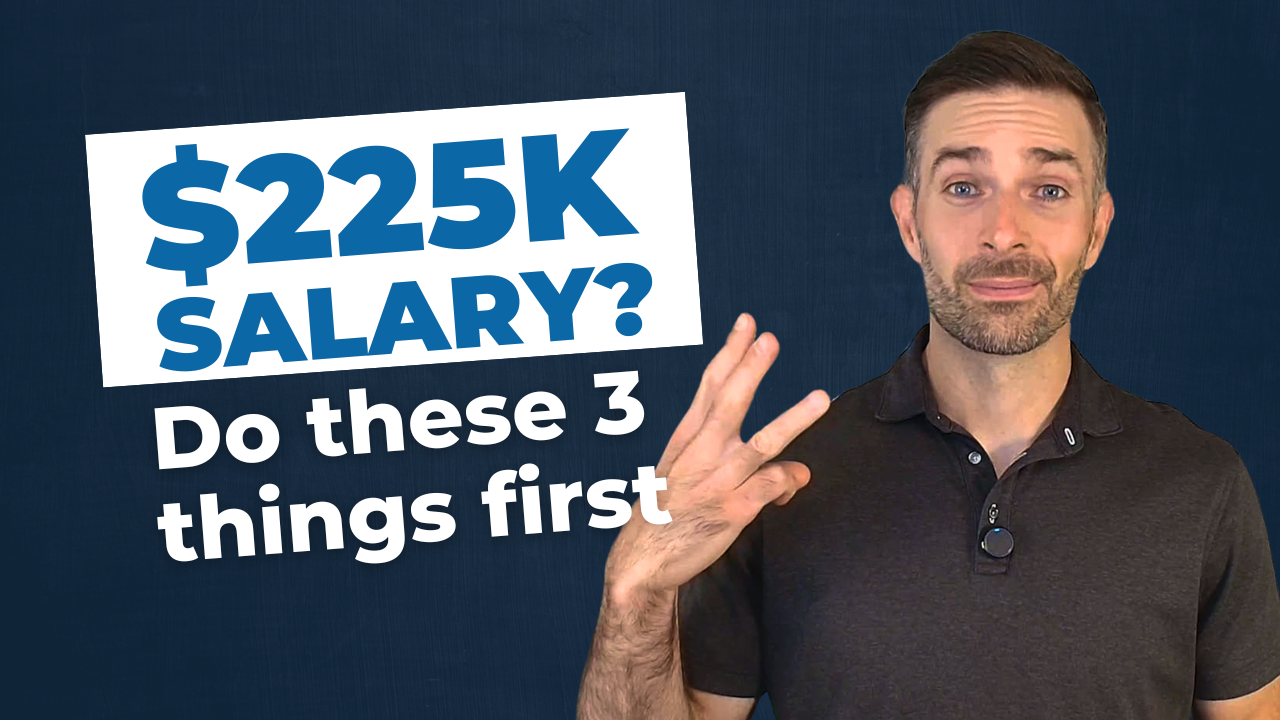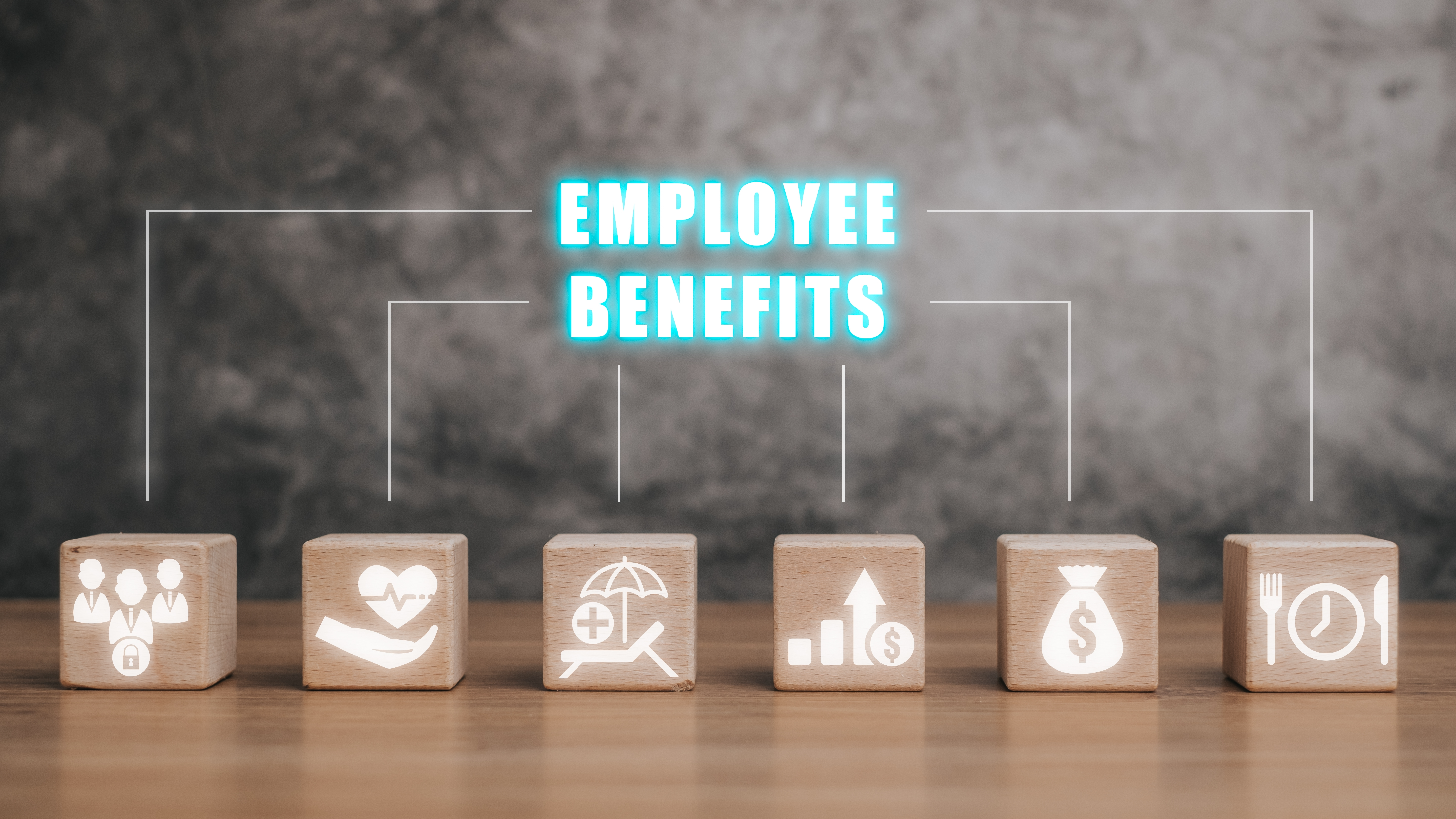Blog

Let’s be honest—nobody likes to budget, let alone track every penny you spend. Personally, I don’t either… and I’m a financial planner!
But here’s the truth: not knowing where your money is going is dangerous, even with a multiple six-figure Big Law salary. That kind of income can disappear faster than you think if lifestyle creep takes over. Before you know it, you feel trapped in your job.
The good news? You don’t need spreadsheets and credit card statements to stay in control. This article breaks down what a Big Law budget should look like and how attorneys can use the Conscious Spending Plan to balance saving and spending.

If you’re making Big Law money but still not sure where your cash should go, you’re not alone. Most attorneys I talk to have money sitting in checking accounts earning nothing—which means they’re working harder than they need to in order to reach their goals.
That’s why today we’re covering the 5 accounts every Big Law attorney must have. These aren’t just “nice to haves”—they’re the foundation for building real wealth and giving yourself options in the future.

If you’re a Big Law attorney, there’s big news on the student loan front—the interest pause is officially over, and the SAVE plan is being phased out.
Whether you’re aiming to minimize interest, maximize flexibility, or just find the smartest path forward, the decision you make today could save—or cost—you tens of thousands over the life of your loan.
Let’s break it down.

The SALT deduction cap has jumped from $10,000 to $40,000 under the One Big Beautiful Bill—but not everyone will benefit equally. In this post, we break down what’s changed, who qualifies, and how high-income earners (especially Big Law attorneys) can maximize this expanded tax break.

Wedding season is in full swing, and love is in the air!
But let’s be real: nothing strains a relationship like money problems. If not handled properly, money can become a source of stress, arguments, and even resentment over time.
In this post, I’ll walk you through the three key financial steps every couple should take before merging their finances.
Whether you’re recently married or just starting to talk about money with your partner, these tips will help you build a strong financial foundation—together.

Are you a Big Law attorney staring down another 80-hour week, dreaming of a life beyond billable hours? My wife, Courtney, was right there with you—until she wasn’t.
In this post, I’ll walk you through the exact three financial steps that gave her the confidence to leave Big Law on her own terms. And the best part? It’s more achievable than you think.

If my wife and I had to do it all over again—starting fresh with that first Big Law paycheck—we’d do things a bit differently. Back when she started in Big Law a decade ago, first-year associates weren’t pulling in $225K per year (plus bonuses) like they are today. That might sound like a lot of money, but when you factor in student loans, taxes, and lifestyle pressure, is it really?
Here are the three things I would do with my money if I were starting off as a first-year Big Law associate today.

Do you ever wonder if you’re missing out on opportunities simply because you don’t know they exist? As they say, “you don’t know what you don’t know.” And these oversights, especially those missed early in your career, could translate into thousands of dollars less in your pocket down the road. For example, a 35-year-old not contributing to their Backdoor Roth IRA (because they think they make too much money) could end up losing out on over one hundred thousand dollars of tax-free benefits over their lifetime. This is true for all aspects of your finances, from investments to insurance, and everything in between. The best way to ensure you don’t miss out is to build your financial management dream team. Think of yourself as the head coach of your household—you call the shots, and your team is there to support you by providing the knowledge you need to make smart financial decisions.
This article will discuss the three most important professionals Big Law attorneys should consider hiring: a tax professional, an insurance agent, and a financial planner.

Becoming a partner in Big Law is a monumental step, marking your evolution from employee to business owner. However, this shift carries significant financial implications, especially for your cash flow. You’ll soon discover that changes in your compensation, tax obligations, retirement contributions, and benefits can lead to a surprising decrease in your monthly income. This blog will equip you with four essential strategies to proactively manage these changes and ensure a healthy cash flow in your first year as partner.

Here we go again. After a strong couple of years for financial markets, volatility and market uncertainty are back in the picture. Along with that comes the uneasy feeling of watching our investments go down. So, how can we better navigate market volatility as young investors?

The last few years have been wild for the real estate market. From home prices skyrocketing during 2021 and 2022, to mortgage rates reaching 25-year highs, it has been a tough environment for home buyers, especially first-time buyers. For Big Law attorneys, the challenge is amplified. Demanding caseloads, long hours, and the pressure to bill leaves little time for navigating the complexities of a home purchase. This nine-step process will help you focus on what is within your control, so you are ready to make your first home purchase when the right opportunity presents itself.

A good rule of thumb for investors is to maximize tax-advantaged accounts before investing in a taxable account. The theory is that because there is no “tax drag” in a tax-advantaged account, if all else is equal, the money should grow faster than in a taxable account, especially when growth starts compounding. For example, if you invest $7,000 per year and earn an 8% average rate of return, you can expect to accumulate close to $800,000 in 30 years (ignoring taxes and fees). In contrast, if your money is in a taxable account and you withdraw it after 30 years, you’ll end up with around $680,000, assuming a 15% long-term capital gains rate. If your funds were in a Roth IRA, you’d get to keep every penny of the $800,000. That’s a $120,000 difference simply by choosing the right account!
The issue is because of the tax advantages, the IRS places restrictions on how much and who can contribute to these accounts. And you guessed it, high-income earners like Big Law attorneys are often the targets of those restrictions. But did you know you can still contribute to a Roth IRA even if you make above the income limits? You can do so by using the backdoor Roth IRA strategy.

For some attorneys, hearing the word “budgeting” is like hearing someone scraping their fingernails on a chalkboard. I get it—your job is very demanding, and spending money can feel like a relief. So, diving into your spending is like reality slapping you in the face. But here’s a secret that many financial planners don’t talk about: if you save enough money each year to accomplish your goals, budgeting doesn’t matter as long as you earn enough to cover your expenses. Yes, you heard that right! Think about it: if your emergency fund is fully funded, your retirement and college savings plans are on track, and you still have extra cash lying around after you’ve covered your fixed expenses, would it really hurt if you bought the business class seats on your next trip? My guess is it wouldn’t. The key is to automate your savings, so you can spend your money guilt-free.
That said, sometimes you simply cannot escape budgeting. For example, if you’re planning to transition out of big law and take a pay cut, or if you’re paying off high-interest debt, such as credit cards, then tracking your spending is crucial. If this is you, then you will want to follow my three-step budgeting process.
If not, then here’s how you can achieve financial freedom without budgeting.

Making partner at a big law firm is a major achievement, but it also comes with significant changes to how you get taxed. When you become a partner, you switch from being an employee of your firm to becoming an owner of your firm. From an IRS standpoint, there is a big difference between the two. On one side, as an associate, your wages are reported to you on form W2, and your firm withholds federal, state (if applicable), and Social Security/Medicare taxes on your behalf. Pretty straightforward. As a partner, your income is now reported to you on form K-1, and your firm no longer withholds taxes on your behalf. It’s your responsibility to remit those taxes to the IRS each quarter.
Understanding how you get taxed as an income (or nonequity) partner is crucial to avoiding underpayment penalties and minimizing the impact of taxes on your cash flow. This article will show you how to do that.
*Note that if your firm treats income partners as W2 employees, this article won’t apply to you.

A recent study from the Motley Fool shows that 69% of Americans plan on making a financial New Year’s resolution for 2025. Yet, a 2024 study from Schwab shows that only 36% of U.S. adults have a written financial plan. Why is that? My guess is that we are very good at setting goals but not so good at seeing them through. There are a few factors for why that’s the case. For one, there are many components in a financial plan (e.g., cash flow, debt, investments, taxes, estate planning, etc.), and most people lack the basic knowledge to address these issues (or simply don’t know what to prioritize). Also, humans typically choose instant gratification over delayed gratification. Well, most financial goals are delayed gratification, so it’s hard to plan for something that may not happen for many years into the future. This article discusses a four-step process to creating financial goals that will stick so you can take charge of your finances in 2025.

As a big law attorney, do you ever feel like you could make a bigger difference in your community? But maybe you don’t have the time or energy to volunteer on the weekend. Or maybe your pro-bono work is taking too much time away from billable hours. Here’s something you might not know: as a big law attorney, you have a unique opportunity to make an impact through charitable giving while reducing your tax bill. By strategically planning charitable contributions, you can maximize your tax deductions and potentially increase the amount you donate to your favorite organizations. Let’s explore how to make charitable giving go further with tax-smart strategies.

Congratulations! You’ve navigated another year in the demanding world of big law. With that, your year-end bonus is now in sight, and you’re probably already envisioning a well-deserved reward for all those late nights.
As a high-earning big law attorney, your year-end bonus represents a significant opportunity to build wealth, reduce debt, and secure your financial future. But you also work really hard to earn this money, so it’s completely normal to want to splurge on something. My goal with this blog post is to provide you with strategies to treat yourself and address your other financial goals. You heard that right—go ahead and plan that vacation or start shopping for that nice watch. Just make sure you’ve done these five strategies first.

The holidays are a time for joy, family, and celebration. But if we’re being honest, they can also be a source of significant financial stress for young attorneys. Between buying gifts, traveling to see family, and hosting gatherings, it’s easy to overspend and start the new year on a bad foot financially. As a young attorney, your financial health is crucial, especially in these early years of your career. You’re likely juggling student loan repayments, building your emergency fund, and perhaps even saving for a down payment on a home. The holidays shouldn’t derail your progress!
Don’t worry, though. With a little planning and mindful spending, you can enjoy the holidays without breaking the bank. Here are five tips to help you stay on track.

Ever opened your mailbox to find a surprisingly large tax bill, even though you haven’t sold any investments? Yeah, it’s not a fun feeling. This can happen because of something called “capital gains distributions” from mutual funds.
Okay, let’s break this down. Mutual funds are like big baskets of different stocks and bonds. When you invest in a mutual fund, you’re buying a tiny piece of that basket. Now, sometimes, the fund manager decides to sell some of the positions in the basket – maybe a stock that’s gone up in value. When they sell something at a profit, it’s called a capital gain. And guess what? They share that profit with you, the investor!
Sounds nice, right? Well, here’s the catch: they also share the tax bill with you. This is done through capital gains distributions, which usually happen toward the end of the year. And these capital gains distributions are taxable, even if you don’t actually see the money (because it gets reinvested). It’s like getting a bonus at work that you immediately put back into your savings account – yet you still have to pay taxes on it. Many investors don’t realize this, and it can lead to a nasty surprise come tax season, especially when the market has done well.

For most Big Law firms, open enrollment is right around the corner. This means you should soon receive (if you haven’t already) a 50-plus page employee benefits guide with every benefit your firm offers. As an employee, you’re not only expected to read this document from front to back and know every benefit available, but also to know all the jargon. But make sure you don’t mess up your elections because you’re not allowed to make changes for another year!
You may sense some sarcasm in my tone. The reality is you are very busy (especially this time of year with the Holidays and year-end billable hour requirements), and learning all the different options and nuances of your employee benefits might not be feasible. This could lead to missed opportunities that could have a long-lasting impact. In this blog, I discuss five tips that will help you understand the major components of your benefits package and ensure you get the most out of it.

The term financial advisor (or financial planner) seems to be thrown around quite a bit these days. If you asked 100 clients of 100 different financial advisors, I bet they’d each have a different definition. This is no fault to anybody, as the regulatory bodies in charge of the financial services industry have not made it a priority to clarify the job description. The main issue with this lack of clarity is that it affects the perception that most people have of financial advisors.
In a recent study, the CFA Institute found that financial advisors ranked as low as mechanics on the trustworthiness scale. This isn’t a knock on mechanics, but finances are such an integral part of someone’s life that consumers should be able to trust the person they go to for advice. In contrast, other industries have made this a priority. For example, a medical doctor is not able to call themselves a doctor until they’ve gone through rigorous training and graduated from medical school. This supports the CFA Institute’s finding that doctors are at the top of the list in terms of trustworthiness. So how can you find a financial advisor that you know will have your best interest in mind? One way is to look for a fee-only advisor.

It seems like we cannot go one week without reading in the news about a large company being hacked and having its data compromised. The reality is that hackers also target small businesses because they are often more vulnerable due to a lack of data protection infrastructure. Small businesses hold just as sensitive data as large companies (date of birth, social security number, banking information, etc.), making them ideal targets for hackers. Given this environment, there is a good chance your information will eventually make its way into ill-advised hands. With that information, these ill-advised hands could open credit cards on your behalf, or worse, steal your identity. How can we, as consumers, protect ourselves from these cyber threats? One easy and efficient way is to freeze our credit.

If you’re anything like me, the car-buying process can be a roller coaster of emotions. From the excitement of the initial test drive and the smell of new leather, to the paralysis by analysis of doing the research, to the frustration and anxiety of the negotiations. But once that initial rush of emotions is over, you start seeing your car as a useful tool that can take you from point A to point B safely. The issue is many of us get caught up in the emotions of buying the car, and we end up making costly mistakes. In this article, we’ll dive into five crucial financial mistakes to avoid when buying a car, which, in turn, means more money in your pocket and less stress.

For young couples, merging finances represents more than just a logistical step—it’s a pledge to work together to achieve common financial goals, such as buying a house, funding retirement, paying off student loan debt, or sending kids to college. However, much like business partnerships, personal relationships can also fail because of poorly handled finances. From differing spending habits to differing attitudes about risk or debt, couples have numerous hurdles to overcome, and these can become make-it-or-break moments in their journey. Yet, with the right approach and understanding, merging finances and sharing common goals can strengthen the bond between partners and build a secure future together. In this blog post, we’ll explore a four-step process on how young couples can prepare to merge their finances.

If you’re a partner at a law firm, I’m sure you’re well aware that you are now considered a self-employed individual in the eyes of the IRS. Being self-employed does not mean that you work alone. It simply means that you are now getting taxed as a business owner, which you are! At this point, you have likely hired someone to prepare your tax return due to the added complexity. The tax preparation services should also come with an estimate of your tax liability for the following year, broken down into four equal quarterly estimated payment vouchers. So far so good, right?!

Maybe it’s because I’m a financial planner, but I feel like my social media feed is filled with posts promoting new “ground-breaking” ways to invest money that will somehow allow you to retire in 5 years and set off in the sunset on your yacht. The idea of setting off in the sunset on a yacht sounds amazing, don’t get me wrong, but I just don’t buy into the idea that there’s a shortcut around building wealth. Saving consistently every month and every year will have a much bigger impact on your financial situation than getting an extra percentage return on your investment. Skeptical? Just read below. But first, let’s establish what a rate of return and savings rate actually mean.

With the Holidays now behind us, and spring not quite here yet, it’s easy to find ourselves daydreaming about our next vacation. Beach or mountain? Sun or snow? Kids or no kids? But for most of us, after a few minutes of daydreaming, negative thoughts start creeping in. Can I really afford to go on vacation right now? Will I need to tap into my emergency account to pay for the trip? Can I still contribute to the kids’ college accounts if we take this vacation? These thoughts are very normal because we are constantly trying to balance enjoying life now, while also making sure we don’t completely neglect our future selves. The good news is with some basic planning and a little bit of willpower, you can get both. Here’s a four-step process to help plan your next trip without compromising on your long-term goals.

Becoming a parent is up there with some of the biggest moments in a person’s life. From feeling tiny hands wrapped around your fingers to watching them take their first steps, the first years of a child’s life can be magical. Nevertheless, it can also be stressful as parents learn to navigate increased financial responsibilities on top of the many other challenges of raising a newborn. In this article, I will break down five financial items to add to your to-do list before your due date.

Attorneys are taught to delegate early in their careers. From a junior associate assigning tasks to paralegals and secretaries, to equity partners delegating tasks to senior associates, delegating happens at all levels of the firm. And attorneys don’t just delegate in the workplace, they delegate all sorts of personal tasks from lawn care to childcare. Generally, it’s not because they are not qualified to perform these tasks, it’s because their time is better spent on activities for which they are most qualified. At what point, though, would it make sense to “delegate” your finances and hire a financial advisor?

Becoming a law firm partner should be an exciting time in your life. All of the hard work that you’ve put in as an associate is finally paying off. Not that you can just hit cruise control from now until retirement, but you get the point—you’ve made it, and you should celebrate! Beyond the recognition, partnership also comes with some significant financial advantages, such as increased compensation (although some new partners may feel like they’re taking less money home in the first couple of years). But it may also come at a time in your life where things are getting more complex.

Over the past few weeks, I’ve spent countless hours on the phone with the Federal Student Aid phone line and with various loan servicers trying to find the best student loan repayment strategy for my clients. Between the new changes that the Biden Administration announced in July 2023 and the end of the 3.5 year-long student loan repayment pause (with payments restarting this month), borrowers have found themselves with unanswered questions: What is the new SAVE repayment plan? When should I re-certify my income if I’m on an Income Driven Repayment Plan? Should I refinance my loans with a private lender?

Did you notice that your take-home paychecks have increased recently? If that’s the case, you may be wondering why, since the last time you checked, you hadn’t gotten a raise.
The answer is likely that you’ve maxed out your Social Security tax for the year.

If you are considering a job opportunity outside of Big Law, you may be questioning whether the new salary can support your current lifestyle. Let’s face it, moving away from Big Law will likely involve a pay cut, whether you go in-house, to a boutique firm or the Government, or decide to leave the law profession altogether. There are practical steps that you can take to ensure that (1) you will feel confident enough to step away from your current position and (2) you won’t need to come back because you cannot afford your lifestyle. In other words, how can you remove the infamous “golden handcuffs”?

Two weeks ago, the Supreme Court struck down the Biden/Harris Student Loan Debt Relief program, delivering a blow to borrowers who hoped to have up to $20,000 of their federal student loans forgiven. In conjunction with the ruling, the student loan repayment pause established during the COVID-19 Pandemic is set to end at the beginning of September 2023 with payments restarting in October 2023. Now that we know what’s ahead, how can you as a borrower better prepare for when the payments restart?

I can already feel the eye rolls through the screen of whatever device you are reading this on. I get it, for most of us, the word budgeting is cringeworthy.
Just stick with me for a few minutes. My goal with this blog post is not to show you how to pinch pennies. Rather, I want to illustrate that through budgeting, you can remove the stress of not knowing where your money is going and create better savings habits.

Did you know that one in four of today’s 20-year-olds can expect to be out of work because of a disabling condition before they reach normal retirement age?* I was shocked when I read that statistic from the Social Security Administration.
May is Disability Insurance Awareness Month (I know there’s an awareness month for everything nowadays!), so for this month’s blog post, I figured I’d dive into what disability is, the risks of becoming disabled, and how to plan for it.

This may sound like a simple task, but in the wake of bank failures like Silicon Valley Bank and Signature Bank, cash management should not be an afterthought. In this blog post, I discuss why one should keep cash in the bank (as opposed to investing it) and best practices on which types of accounts to use.

Whether you’re opening a new credit card, buying a new couch on credit, or applying for a new mortgage, the lender from whom you are borrowing is pulling your credit score to see if you are a good borrower and how likely you are to pay the debt back on time (i.e., your creditworthiness). The interest rate that you will be paying on the loan is largely influenced by your credit score, which will impact the total amount that you have to pay back. Keeping track of your credit score is critical, even if you have a good income.

As we approach year-end, some of you might be eagerly waiting for comp memos to hit your inbox.
The question is, when that bonus gets deposited into your bank account, what are you going to do with it? Are you planning a weekend getaway? Splurging on something? Or do you plan to save it? This article discusses a few ideas on how to use your year-end bonus.
